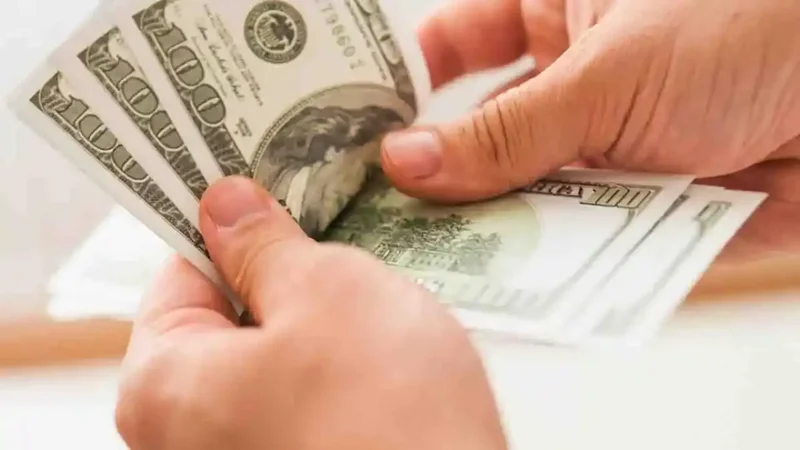BNB Signals | Binance Coin Trading Alerts & Insights
BNB Signals | Binance Coin Trading Alerts & Insights
Okay, buckle up, everyone, because things are about to get really interesting. We're talking about Donald Trump floating the idea of giving Americans a $2,000 "tariff dividend"—funded by the very tariffs his administration has put in place. Now, I know what some of you are thinking: "Another stimulus check? Is this even real?" But let's put aside the immediate political questions for a moment and zoom out. Way out. What if this isn't just about a quick cash injection, but a sign of a fundamental shift in how we think about economics and government?
Here's the deal: Trump took to Truth Social, declaring that "A dividend of at least $2000 a person (not including high income people!) will be paid to everyone." And yes, he also called those against tariffs "FOOLS!" (Never change, right?). Now, Treasury Secretary Scott Bessent is hinting it could come via tax cuts already in place. Senator Hawley has also proposed something similar. This isn't the first time he's mentioned this concept either. We've heard whispers of stimulus checks tied to tariffs before, even a wild idea of a $5,000 "dividend" from government efficiency savings.
The core question is: can it even work? The numbers are… complicated. The administration claims billions in tariff revenue. The Treasury Department’s September report says $195 billion was collected in customs duties during the first three quarters of the year. But experts like Erica York at the Tax Foundation are raising red flags. She calculates that $2,000 checks could cost nearly double the amount collected so far. "If the cutoff is $100,000, 150M adults would qualify, for a cost near $300 billion,” she wrote. And John Arnold estimates the dividend payments could reach a staggering $513 billion. This uses a model not unlike the irs stimulus check system we saw recently.
But here's where it gets really interesting, the big idea that I want you to consider: what if the point isn't just the money itself, but the concept? What if this is a trial balloon for a future where governments directly distribute wealth to citizens, funded not by traditional taxes, but by revenue streams tied to trade, technology, or even natural resources? Imagine a world where the benefits of globalization—or even automation—are directly shared with the people, a true stimulus check for 2025 and beyond.
Think about it: we're already seeing the seeds of this idea in universal basic income experiments. What Trump is proposing is a version of that, albeit one tied to a specific revenue source. And while the immediate numbers might not add up, the potential is enormous.

It's like the early days of the internet. Back then, people scoffed at the idea of buying things online. They said it was insecure, impractical, and would never catch on. Now look where we are! Could a "tariff dividend" be the first step toward a radically different economic model? Are we getting a stimulus check in 2025 that will usher in this new era?
Of course, there are huge ethical considerations. Who decides who gets the money? How do we prevent corruption and abuse? And what happens if the revenue streams dry up? Details on why the decision was made remain scarce, but the impact is clear. I honestly don't know the answer to those questions, but I do know that these are the kinds of conversations we need to be having.
As of October, consumers were paying an average effective tariff rate of nearly 18%, the highest since 1934, according to data from the Yale Budget Lab. Since the president introduced widespread tariffs on global trading partners in April, companies have passed part of those costs on to consumers.
The Supreme Court even heard arguments on Trump’s sweeping global tariffs and appeared skeptical of their legality. This creates an environment where the future is uncertain. Trump is weighing the idea as a bid for support, according to Trump weighs giving Americans $2,000 from tariff revenues in bid for support.
So, what does all this mean? It means we're at a crossroads. We can either dismiss this as another political stunt, or we can see it as a glimpse into a future where economic prosperity is more widely shared. It's a future where technology and trade work for everyone, not just a select few. I know which future I'm rooting for.